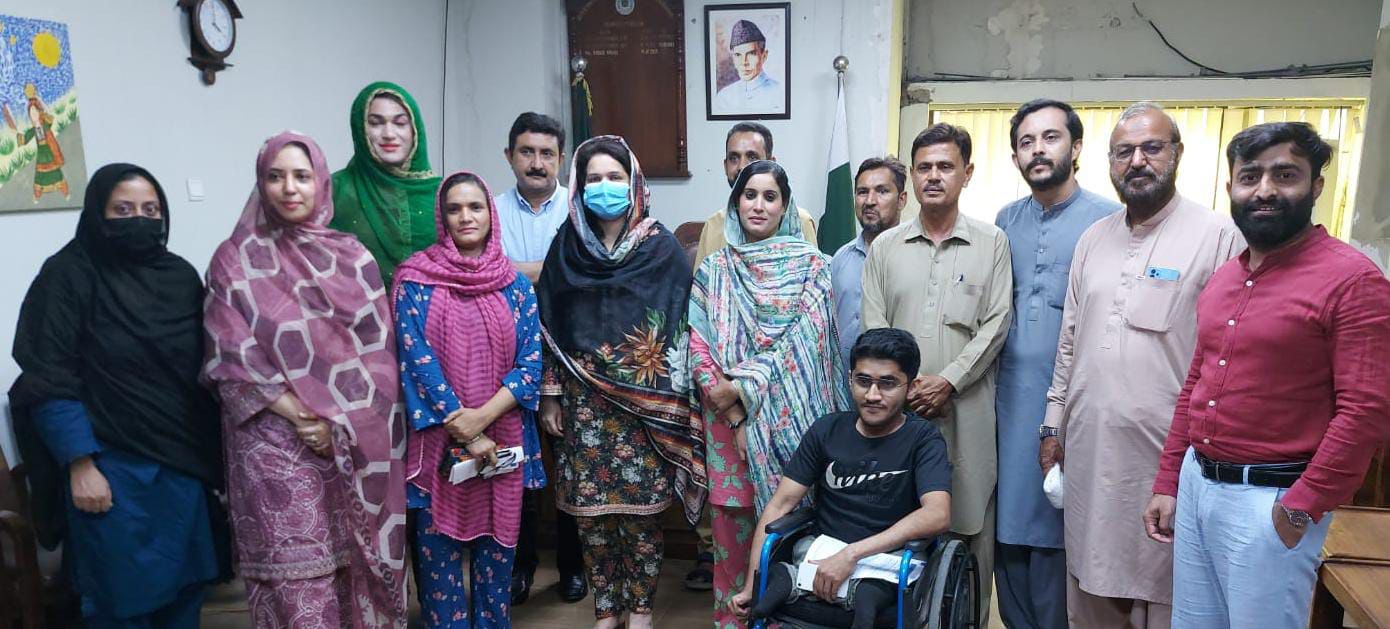Staff Report
PESHAWAR: As part of a nationwide initiative jointly implemented by Individualland and CPDI and funded by the European Union, a 10-member delegation met with Ms. Rubab Mehdi, Provincial Ombudsperson for Protection against Harassment at the Workplace in Khyber Pakhtunkhwa. The meeting focused on the increasing challenges of workplace harassment, particularly for women, transgender persons, and persons with disabilities.
Saifullah Khoso, leading the delegation on behalf of Individualland, remarked:
“The office of the Ombudsperson is a symbol of hope for thousands across the province. But for it to truly serve its purpose, we must extend its reach to the most marginalized and remote communities.”
Abdus Salam Betab, representing southern districts of KP, shared:
“Women in areas like Tank, Dera Ismail Khan, and the merged districts face multiple barriers—no smartphones, no transport, and no access to legal remedies. They need localized support.”
Ms. Rubab Mehdi acknowledged these concerns, stating:
“Despite our limited resources, we check our emails daily, process online complaints, and even conduct hearings virtually. Our goal is to expand our presence by appointing divisional-level focal persons to ensure accessibility across the province.”
A representative from the disability rights community highlighted the gap between job quotas and actual employment opportunities for persons with disabilities, along with the harassment they face in public spaces. The Ombudsperson committed to addressing these concerns and enhancing awareness campaigns.
The delegation also proposed partnering with district-level Social Welfare and Information Departments to appoint local focal persons. Their existing infrastructure could help bridge the communication gap between vulnerable groups and the Ombudsperson’s office.
This meeting is part of a broader, EU-funded project jointly led by Individualland and CPDI across Pakistan, aiming to strengthen institutional responsiveness and ensure safe, dignified environments for women and marginalized communities in all workplaces.

